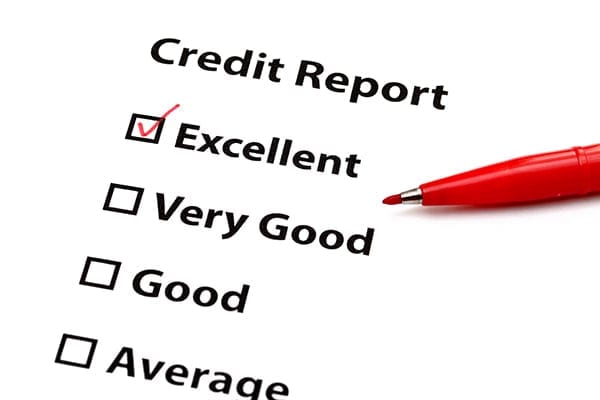Dan Ahlstrand and Clinton Wilkins are joined by Mario Cloutier of Manulife to discuss the importance of risk insurance for home additions, creditor insurance, and the importance of financial literacy.

Do you know how to improve your credit score?
You got through the entire day applying for a loan or credit card only to be flashed with one word: REJECTED.
When you come to find out why, it was because your credit score was too low.
Unfortunately, this scenario happens a lot to Canadians. Your credit score will waiver throughout your life, but if it’s consistently in the lower three digits, it’s going to hinder you from getting loans, a line of credit and a mortgage.
Improving your credit score is the first step towards being financially responsible. Your credit score speaks volumes for your financial well-being.
Having said that, do you know how to improve your credit score?
What’s a ‘good’ credit score?
Having a good credit score will open multiple financial possibilities for you. So, how do lenders gauge your credit score?
Credit scores in Canada rank from 300 to 900. A score above 720 is excellent. Anything between 680 to 720 is considered good.
To keep track of changes to your credit, you have options!
You can request a full credit report from Equifax or Transunion. It’s important to note that these will not show you your credit score. To keep track of your credit score we recommend downloading Borrowell to review your Equifax score, and Credit Karma to keep track of your TransUnion score. Both apps are free to download and use, give you weekly updates, and do not impact your credit score!
According to a study published by Borrowell in 2019, the Canadian average Equifax credit score was 648. Transunion reports that the average credit score in Canada is 650. It’s important to remember that the perfect credit score is the one that gives you access to the financial products you are looking for. There is no single perfect score for everyone!
If you are on the lower end of your credit score, don’t panic. You see, the lower a person’s score is, the more likely they are to increase it quickly. The small changes you make can help build it up faster.
It won’t happen right away. But, if you follow these steps, you can see some changes in the next couple of months.
Improving your credit score
We’ve narrowed down four steps that can help you improve your credit score and show the lenders that you’re a reliable borrower.
Pay bills on time, every time!
No approach will get you your desired credit score more than paying bills will. Why? Because your payment record is the deciding factor that affects your credit score. So much so that even after clearing your late payments, it’s not taken immediately off your credit record.
At least pay the minimum amount required. If you don’t pay it, your credit score drops gravely.
Set reminders on your phone for when the bills are due. Even better, call your bank and set automatic payments to avoid this problem in the first place.
If you miss your payments for 30 days or more, call your bank immediately. Your bank is a creditor. You can seek a payment arrangement with them so that your credit score doesn’t fall.
Understand credit utilization ratio
There are always deals, rewards or flashy offerings that tempt you to max out your credit card. Doing so messes with your credit utilization ratio.
Credit utilization ratio is a way to calculate your credit score by the lenders. It consists of adding all your credit card balances together and dividing it by the total credit limit.
For example, if you generally use $2,000 every month, and your total credit limit is $10,000, your utilization ratio is 20 per cent.
By keeping your credit balances low, you not only improve your credit score, but it reflects positively to the lenders. Lenders generally like to see low ratios of 30 per cent or less because it tells them you don’t max your credit cards and can manage debt well.
Dispute credit report errors
Inaccurate information on your credit card can lead to dragging your scores down. You can fix it to improve your credit score.
Log in to Equifax and Transunion and answer their basic questions. You can access your credit report instantly or have it mailed to your house. With the report, you can check if there are any mistakes.
Request a higher credit limit
If your credit card provider can offer you a higher limit on your card, take it.
Once your credit card limit goes up and your balance stays the same, it lowers your credit utilization ratio. The key here is to not use the card beyond your regular consumption.
This will dramatically improve your credit score.
If your income has increased or if your payments are consistently paid on time, there’s a decent shot that your bank will approve you of a higher limit.
Stay away from unnecessary credit checks
You may religiously pay your bills and use less credit.
But, there will be instances where certain unknowing actions may have your credit inquired. And that may affect your credit score.
It could be something like signing up for a retail card or switching to a new postpaid network provider. Unless needed, avoid them. So, the next time a sales rep tempts you to sign up for a Walmart or a Hudson’s Bay card to save more money, be wary, it will likely drop your credit score.
Patience and regular payments eventually pay off! Improving your credit score is something you won’t regret – and something that you’ll benefit from both short-term and long-term.
When looking for further advice on how you can improve your credit score, we would love to chat with you! Give us a call at Clinton Wilkins Mortgage Team at 902-482-2770 or get in touch with us here!


